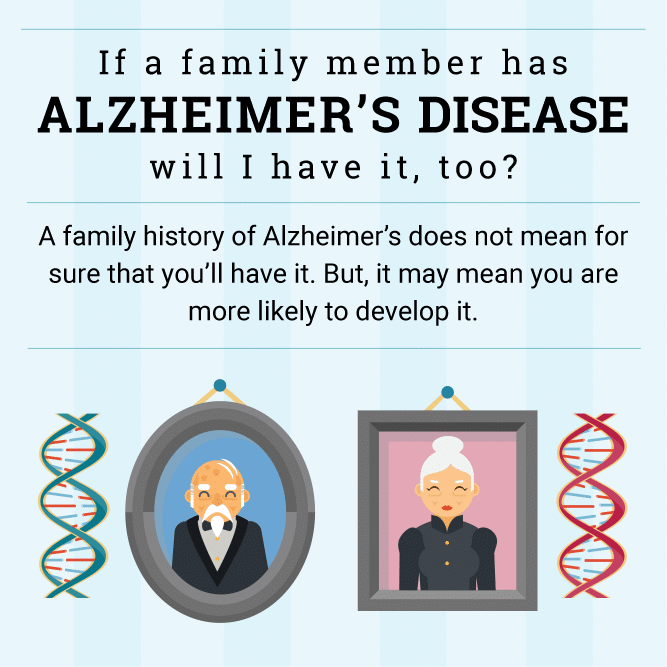11 Myths About Alzheimer’s Disease

Alzheimer’s disease is a leading cause of death in the United States, and millions of Americans are affected by the disease. It’s important to distinguish the facts from the myths about Alzheimer’s, especially when it comes to finding information online. Read on to learn about common myths surrounding this disease.
1. Alzheimer’s disease and dementia are the same thing
People often use the terms Alzheimer’s disease and dementia interchangeably, but there is a difference. Dementia refers to impaired memory, thinking, reasoning, and behavior, and Alzheimer’s is just one type of dementia. The terms are likely confused because Alzheimer’s is the most common cause of dementia and the most well-known. But there are other types of dementia, too, including Lewy body dementia, frontotemporal dementia, and vascular dementia.
2. I will develop Alzheimer’s disease if my parent has it
If a parent or close relative has Alzheimer’s disease, you may be worried about developing it as you get older. A person’s chance of developing Alzheimer’s is higher if they have certain genetic variants that can be passed down from a parent. However, just because a biological parent has Alzheimer’s does not mean that their children will develop it.
Alzheimer’s disease is complex, and scientists don’t yet fully understand what causes it in most people. Research suggests that in most individuals, a host of factors beyond genetics play a role in the development and course of the disease. Environmental and lifestyle factors, such as exercise, diet, exposure to pollutants, and smoking may also affect a person’s risk for Alzheimer’s. Although we don’t yet know how to prevent Alzheimer’s, it’s important to practice healthy behaviors throughout your lifetime, such as exercising regularly and eating a balanced diet.
To learn about additional myths about Alzheimer’s Disease, from the National Institute on Aging, CLICK HERE.
